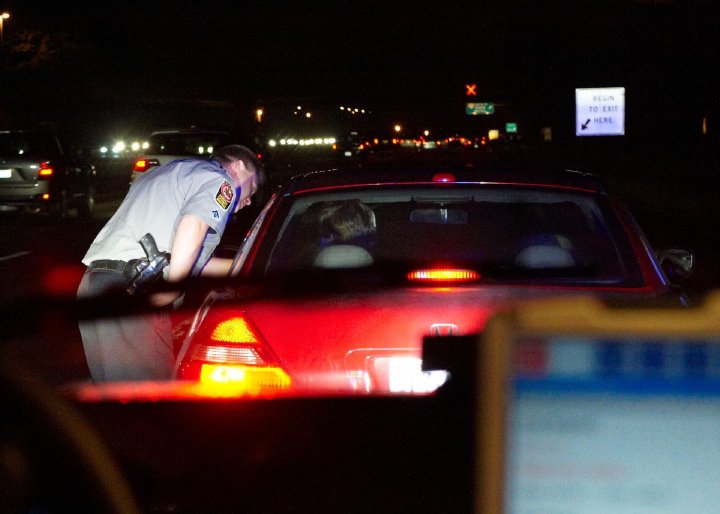
Greater Philadelphia DUI lawyer
See our YouTube Channel for detailed DUI information.
In Philadelphia, as with all sixty-seven (67) Pennsylvania counties, it is illegal for a person to drive a motor vehicle while under the influence of alcohol, medication or drugs or with a blood alcohol level of 0.08 percent or more. If someone consistently operates a car vehicle drinking or taking medication or drugs, it is likely that the person will be arrested for driving under the influence at some point.
Pennsylvania Law provides that it is illegal to drive a motor vehicle if:
- The driver’s ability to operate the motor vehicle is impaired by alcohol, medication or drugs.
- The driver’s blood alcohol concentration (BAC) is at or above 0.08%.
Law Enforcement Determining DUI
When a law enforcement officer suspects a person is driving under the influence, they can use certain investigative techniques to determine if the person may be operating a motor vehicle while under the influence before making a DUI arrest.
Observation
Law enforcement officers constantly watch vehicles in motion for certain driving behavior before they are allowed by law to stop someone for suspicion of drunk driving. For example, if a driver is operating their motor vehicle erratically, a police officer may stop the driver. Erratic driving may include making wrong turns, straddling a lane, weaving within a lane, failing to signal prior to turning or changing lanes, speeding, driving too slowly, failing to stop at a stop light or stop sign, or failing to proceed through an intersection appropriately.
After a policeman stops a driver, they are trained to observe the driver’s behavior carefully for driving under the influence signs. After making the stop, police officers will ordinarily look for symptoms of impairment such as bloodshot and watery eyes, slurred speech, staggering, and the odor of an alcoholic beverage on the driver’s breath.
Field Sobriety Tests
If the officer suspects a person may be driving under the influence, they can escalate the contact to a DUI investigation and ask the person to perform a field sobriety tests. Field sobriety tests are voluntary. However, police have been trained not to tell the driver that they have a right to refuse to perform them. If a person agrees to perform field sobriety tests, he or she will be evaluated by the office on their ability to follow instructions, reaction and performance during the testing process. Attorney Mitchell advises people to refuse to take field sobriety tests, even if they have not consumed any alcoholic beverages, as law enforcement may claim they have failed in order to make an arrest for drunk driving.
Blood Alcohol Level
Law enforcement officers may ask the driver to take a chemical test to determine a driver’s blood alcohol level. There are two types of chemical test. The first type of chemical test is a breath test and the second is a test requiring a blood draw.
Evidential Blood Alcohol Concentration (BAC) tests are mandatory and are intended to measure with certainty the amount of alcohol in the driver’s blood within two hours of driving. In Pennsylvania a driver is presumed to be under the influence if his Blood Alcohol Concentration (BAC) is 0.08% or higher.
DUI Punishments
DUI is treated as a serious crime in Pennsylvania. Each county has a district attorney’s office which prosecutes (charges) criminal cases and most counties have a particular way of punishing people who have been convicted of driving under the influence.
If a person is arrested for DUI, a criminal arrest record will be created. If convicted, the record of conviction may be viewed negatively by present and future employers and can also impact a person’s educational and professional opportunities. A person who is convicted of DUI is also subject to harsh legal consequences, such as jail time, fines, license suspension, safe driving school, and probation. Sentences which can be enhanced if the driver refused to take the BAC test, had a BAC result of 0.16% or higher, had a minor under age 14 in the vehicle, or had prior DUI convictions. There is a First Time Offenders program for drivers without a record where the incident did not result in serious bodily injury and/or major property damage.
Greater Philadelphia DUI Attorney
If you have been arrested for DUI in Philadelphia or any of the surrounding counties of Montgomery, Delaware, Bucks, or Chester hiring a qualified attorney is a good decision. A knowledgeable DUI lawyer will protect your rights, inform you of your legal options at all stages of the case, investigate the circumstances of your arrest, and may question police and other witnesses. Most importantly, an experienced DUI attorney will obtain the best possible result if you end up making a plea bargain or provide the professional skill and resources required to effectively fight your charges.
Attorney Joe Mitchell and the experts and investigators working with his office have been helping people charged with DUI in Philadelphia for more than fifteen (15) years. Attorney Mitchell has the specialized education, training, and experience to effectively defend you in any Greater Philadelphia drunk driving case. If your driver’s license is suspended, Attorney Mitchell knows how to help you get your license reinstated on the earliest possible date.
Contact the Office
Attorney Joe Mitchell and the DUI investigators and experts working with him stand ready to help you or your family member. A member of the office is available to speak with you regarding the case any day of the week at (267) 627-4JOE (267-627-4563).